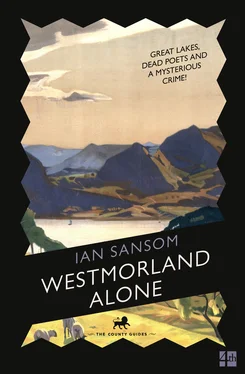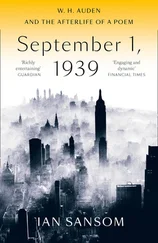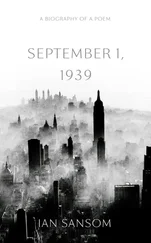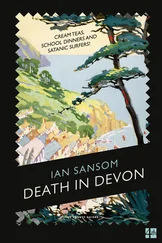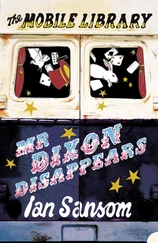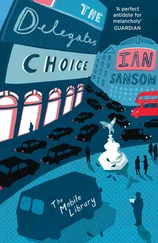I felt revived and reinvigorated. I considered returning to the game. I had a feeling my luck had changed. Athena and the other women had gone back inside and there were only one or two couples remaining in the yard. It would have taken a dousing with a bucket of cold water to get their attention. In the opposite corner to the lav was a convenient big black door out into an alleyway. I realised I could probably disappear and no one would notice.
I unbolted the door, slipped into the alleyway, and started walking.
The infernal streets of Soho were unusually quiet and I found myself once again wandering that blessed one-mile square, from Oxford Street to the north and Shaftesbury Avenue to the south, from Regent Street to the west and Charing Cross Road to the east, that strange other-world – or underworld – where so many of us come to escape, and where many of us find ourselves for ever trapped.
Unfortunately I wasn’t able to return to my temporary lodgings, a place just off Wardour Street that generously, if inaccurately, described itself as a hotel. I doubted that the management would be willing to accept an IOU for payment and there was no way I was parting with my recently acquired pocketful of treasure and so, eventually, exhausted from my wandering and still trying to flush the various excitements of the evening out my system, I found myself lying down to nap on a bench outside Marlborough Street Magistrates’ Court. This was ironic.
In his Dictionary of Usage and Abusage (1932) Morley writes at great length, and with utter despair, about the common misuse of the term ‘irony’ by both the ill-educated and the over-educated. ‘An ironic statement,’ he writes, ‘is like a good lawyer or a politician. It says one thing but means another. An irony is not merely something odd or unusual. The word “ironic” should never be used to describe the merely unfortunate.’ My laying my head down outside Marlborough Street Magistrates’ Court was not therefore, perhaps, strictly speaking , an irony. It was, however, at the very least, extremely unfortunate.
Marlborough Street Magistrates’ Court was the first court in which I ever appeared. It was shortly after I had returned from Spain. I had become involved with a woman who was involved with a man who had treated her badly. Fortunately at the time I had money and resources and was therefore able to employ a good lawyer who managed to get me off with only a fine on a charge of common assault. This encounter with the law was an experience I was determined not to repeat. Morley would probably have called this hubris.
It was 3 a.m., I was cold and tired, and as far as I recall my reasoning went something like this: if the safest place to sleep rough is a police cell then the next safest is probably on the steps of a court. On both counts, alas, I turned out to be wrong.
I found myself prodded awake by three varsity types who had clearly enjoyed a long night at the opera. They were all in evening dress. There was a fat blond buffoonish-looking one who wore a yellow gardenia in his buttonhole, a greasy-looking one, with brilliantined hair, and the other – the other might almost have been me, before everything that happened had happened.
The first thing I knew was the greasy one tapping his cigar ash into my eyes.
‘Come on, man! Up! Up!’ He was leaning over me, breathing his fumes into my face. ‘Show some respect to your betters, you filthy swine!’
‘Hey! Tramp!’ called the fat blond, with an Old Etonian drawl. He ran his fingers through his unruly mop of hair. ‘What’s the matter with you! Have you no home to go to? Eh? Come on! Come on! Up! Up! Up! Queensberry Rules, old chap! I’ll take you on!’
The greasy one grabbed me by my lapels. I feared that at any moment he might reach into my pockets.
I acted on instinct.
I raised my knee, catching him on the side of the head. I had been involved in enough brawls in Spain to know that the important thing was just to get away. That’s all I was intending to do.
As he was falling back I hooked my foot around his ankle and then swung a punch at his head with the side of my fist. He twisted as he went down and it was his face that hit the pavement first. There was a sickening thud. The fat blond then came roaring at me, but I managed to push him off easily, and he too went down. The third man ran off.
The fat blond would be fine: he was just winded and shocked. But the greasy-looking one had gone down hard and had gone very quiet: there was a pool of blood haloed around his head. He did not look at all well.
To repeat, to be clear, and in case of confusion: I had been attacked; I had acted in self-defence; and what had happened was clearly an accident.
In his controversial pamphlet ‘In Defence of Self-Defence’ (1939), a much misunderstood little treatise, Morley sets out the criteria by which a person or nation might justly claim the right to defend themselves. Morley’s criteria are clear, detailed and as follows: self-defence may be permissible only if and when ‘1) a culpable 2) aggressor 3) knowingly initiates 4) an unprovoked attack 5) on an innocent victim 6) who is unable to avoid or escape harm 7) without causing necessary 8) or proportionate harm 9) with the sole intention 10) of defending himself’. Morley then further clarifies the permissible conditions and circumstances with a sentence that subsequently caused him much pain and harm: ‘Even when such conditions are met it is still debatable whether self-defence by a nation or person can ever be considered a moral good.’ His timing was unfortunate. It was a misjudgement: everyone, it seems, even Morley, makes mistakes.
All I would have had to have done at that moment was to explain what had happened to the police. It was perfectly simple. I was an innocent man, admittedly an innocent man with a criminal record, who had recently returned from Spain, admittedly fighting with the communists, and who had found employment with one of the country’s most revered and famous authors, admittedly on rather false pretences, and I had been enjoying a quiet evening in Soho, admittedly in an after-hours drinking establishment, from which I had fled, admittedly owing almost one hundred pounds in gambling debts, and with a pocketful of illegal and expensive powders, which were not, strictly speaking, my own … whereupon I had become the victim of an unprovoked attack by culpable aggressors and had acted with the sole intention of defending myself.
I did not in fact attempt to explain this to the police.
I owed it to Morley not to get him involved.
And, of course, I owed it to myself.
I did what anyone else would have done.
I ran.

CHAPTER 2
RISE AND SHINE AND GIVE GOD THE GLORY
AS DAWN BROKE I found myself wandering up Great Portland Street, onto the Euston Road and along towards St Pancras.
The arrangement had been to meet Miriam and Morley outside St Pancras at 7 a.m. in order to set off on our next adventure. The first of the County Guides – to Norfolk – had been published to a few lukewarm reviews by the sort of reviewers who regarded Morley’s work as beneath contempt. ‘Yet another pointless and whimsical outing from England’s self-styled “People’s Professor,”’ wrote some pompous – anonymous – twit in the Times Literary Supplement (or the ‘Times Literary Discontent’, as Morley called it). ‘A work of enthusiasm rather than of serious scholarship,’ complained some frightful bluestocking in The Times . ‘Essentially frivolous,’ concluded the Manchester Guardian . But Morley was not discouraged. He was never discouraged. He was not, I believed at the time, discourageable. The Grand Project, Le Grand Projet – The County Guides , a complete guide to the English counties, a people’s history, forty or more volumes in all, a volume to be completed every three to four weeks, his mad modern Domesday Book – was not to be derailed by anyone, rich or poor, educated, uneducated, varsity, non-varsity, dead or alive.
Читать дальше
